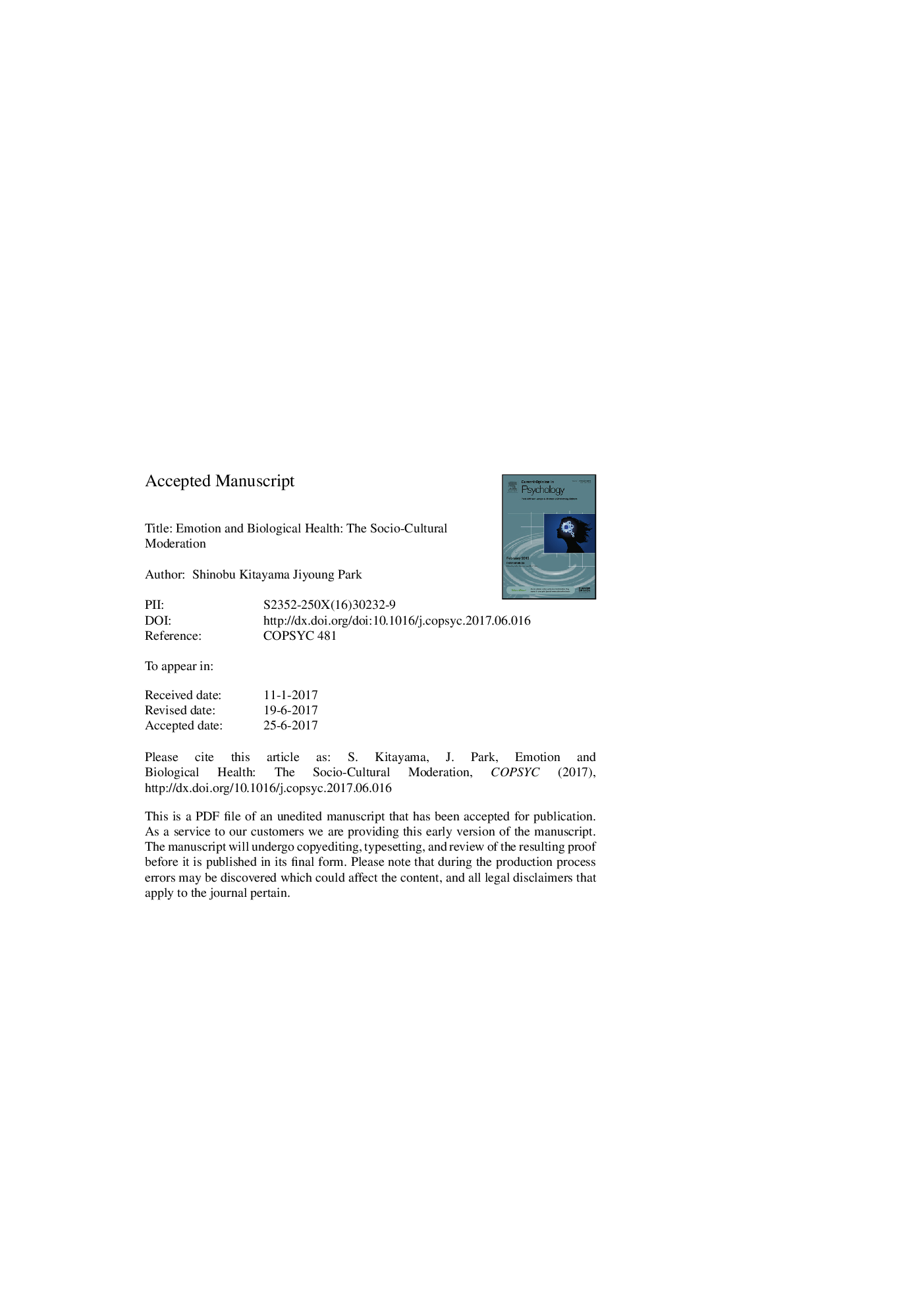| Article ID | Journal | Published Year | Pages | File Type |
|---|---|---|---|---|
| 5033418 | Current Opinion in Psychology | 2017 | 20 Pages |
Abstract
Prior evidence shows that positive and negative emotions are associated with better and worse health, respectively. However, the emotion-health relationship may be conflated since this evidence is based nearly exclusively on subjective measures of health. Here, we reviewed more recent evidence focusing on biological health and showed that the emotion-health link is more complex. First, whereas negative emotional states such as negative affect and anger expression are inversely linked to biological health among Americans, this relationship is either not present (negative affect) or even reversed (anger expression) for Japanese. Second, whereas a meaningfulness aspect of happiness (eudaimonia) is linked consistently to better biological health, the relationship between its pleasantness aspect (hedonia) and biological health is uncertain. Moreover, a contextualized sense of meaningfulness in a work setting is strongly associated with better biological health among Japanese. Altogether, the initial evidence reviewed here underscores a need to conceptualize the biological dynamics of health and wellbeing as inherently intertwined with socio-cultural processes.
Related Topics
Social Sciences and Humanities
Psychology
Applied Psychology
Authors
Shinobu Kitayama, Jiyoung Park,
